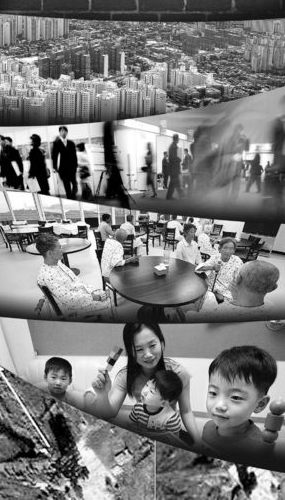 |
Cost of education, preparation for old age also top list
Nine out of 10 South Koreans think housing and employment are serious problems, and an absolute majority of 85.9 percent want to require that builders reveal housing construction costs, a plan the government opposes. In addition, eight out of 10 Koreans are pessimistic about children’s education and preparation for growing older. These are the findings of an opinion poll funded by the Hankyoreh and released on January 2, regarding the "five biggest worries" faced by South Koreans, as well as ways to solve these problems. The respondents thought that affordable housing was the most serious problem, followed by employment, difficulties faced in old age, children’s education, and peace on the Korean peninsula in the face of North Korea’s accelerated nuclear program.In terms of the real estate policies of the current administration, 62.9 percent of the respondents considered them failures, while only 0.6 percent thought them successful. About 33.8 percent were reserved on the matter. Nearly 29 percent of office workers replied that they felt job insecurity, with almost one out of three office workers in their 40s and 50s feeling uneasy about their employment situation. The prospect of preparing for old age was named as a problem by about eight out of 10 respondents. Asked if they were preparing for old age, 59.6 percent said yes and 40.4 percent said no. By age group, 79.4 percent of persons aged from 30 to 39 and 73.1 percent of those aged from 40 to 49 were preparing for their golden years. In relation to childhood education, nearly 56.1 percent named private educational fees, such as afterschool tutoring at institutes, or hagwon, as a serious burden. The frequently changing college entrance examination system was called the top problem by 50.6 percent. Regarding the North Korean nuclear crisis and establishment of a peace regime on the Korean peninsula, 37.3 percent of respondents said a peaceful agreement through the South-North summit was the best resolution, followed by the 18.8 percent that called for normalization of the North-U.S. relationship, 14.5 percent for cooperation between South Korea, the U.S., and Japan, and 12.7 percent for the strengthening of South Korea’s military capability. In connection with the current South Korean administration’s financial and political engagement policy toward the North, 39.2 percent thought that it should be completely sacked, while 54.8 percent said it should be maintained. At the request of the Hankyoreh, the firm Research Plus conducted the two nationwide surveys of 1,000 adults each during December 27-28. The results have a margin of margin of sampling error of +/- 3.1 percentage points and a 95 percent confidence level. Please direct questions or comments to [englishhani@hani.co.kr]





